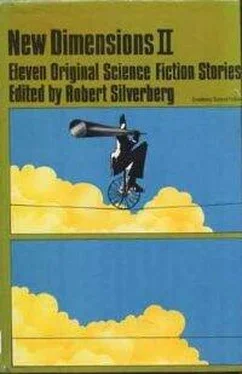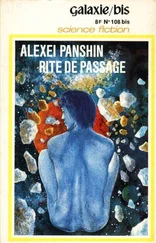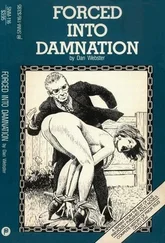R. LAFFERTY - Eurema's Dam
Здесь есть возможность читать онлайн «R. LAFFERTY - Eurema's Dam» весь текст электронной книги совершенно бесплатно (целиком полную версию без сокращений). В некоторых случаях можно слушать аудио, скачать через торрент в формате fb2 и присутствует краткое содержание. Год выпуска: 1972, ISBN: 1972, Издательство: Doubleday, Жанр: Фантастика и фэнтези, на английском языке. Описание произведения, (предисловие) а так же отзывы посетителей доступны на портале библиотеки ЛибКат.
- Название:Eurema's Dam
- Автор:
- Издательство:Doubleday
- Жанр:
- Год:1972
- ISBN:0-385-09141-9
- Рейтинг книги:5 / 5. Голосов: 1
-
Избранное:Добавить в избранное
- Отзывы:
-
Ваша оценка:
- 100
- 1
- 2
- 3
- 4
- 5
Eurema's Dam: краткое содержание, описание и аннотация
Предлагаем к чтению аннотацию, описание, краткое содержание или предисловие (зависит от того, что написал сам автор книги «Eurema's Dam»). Если вы не нашли необходимую информацию о книге — напишите в комментариях, мы постараемся отыскать её.
Eurema's Dam — читать онлайн бесплатно полную книгу (весь текст) целиком
Ниже представлен текст книги, разбитый по страницам. Система сохранения места последней прочитанной страницы, позволяет с удобством читать онлайн бесплатно книгу «Eurema's Dam», без необходимости каждый раз заново искать на чём Вы остановились. Поставьте закладку, и сможете в любой момент перейти на страницу, на которой закончили чтение.
Интервал:
Закладка:
Eurema’s Dam
by R. A. Lafferty
He was about the last of them.
What? The last of the great individualists? The last of the true creative geniuses of the century? The last of the sheer precursors?
No. No. He was the last of the dolts.
Kids were being born smarter all the time when he came along, and they would be so forever more. He was about the last dumb kid ever born.
Even his mother had to admit that Albert was a slow child. What else can you call a boy who doesn’t begin to talk till he is four years old, who won’t learn to handle a spoon till he is six, who can’t operate a doorknob till he is eight? What else can you say about one who put his shoes on the wrong feet and walked in pain? And who had to be told to close his mouth after yawning?
Some things would always be beyond him—like whether it was the big hand or the little hand of the clock that told the hours. But this wasn’t something serious. He never did care what time it was.
When, about the middle of his ninth year, Albert made a breakthrough at telling his right hand from his left, he did it by the most ridiculous set of mnemonics ever put together. It had to do with the way a dog turns around before lying down, the direction of whirlpools and whirlwinds, the side a cow is milked from and a horse is mounted from, the direction of twist of oak and sycamore leaves, the maze patterns of rock moss and of tree moss, the cleavage of limestone, the direction of a hawk’s wheeling, of a shrike’s hunting, and of a snake’s coiling (remembering that the mountain boomer is an exception, and that it isn’t a true snake), the lay of cedar fronds and of balsam fronds, the twist of a hole dug by a skunk and by a badger (remembering pungently that skunks sometimes use old badger holes). Well, Albert finally learned to remember which was right and which was left, but an observant boy would have learned his right hand from his left without all that nonsense.
Albert never learned to write a readable hand. To get by in school he cheated. From a bicycle speedometer, a midget motor, tiny eccentric cams, and batteries stolen from his grandfather’s hearing aid, Albert made a machine to write for him. It was small as a doodlebug and fitted onto a pen or pencil so that Albert could conceal it with his fingers. It formed the letters beautifully as Albert had set the cams to follow a copybook model. He triggered the different letters with keys no bigger than whiskers. Sure it was crooked, but what else can you do when you’re too dumb to learn how to write passably?
Albert couldn’t figure at all. He had to make another machine to figure for him. It was a palm-of-the-hand thing that would add and subtract and multiply and divide. The next year when he was in the ninth grade they gave him algebra, and he had to devise a flipper to go on the end of his gadget to work quadratic and simultaneous equations. If it weren’t for such cheating Albert wouldn’t have gotten any marks at all in school.
He had another difficulty when he came to his fifteenth year. People, that is an understatement. There should be a stronger word than “difficulty” for it. Albert was afraid of girls.
What to do?
“I will build me a machine that is not afraid of girls,” Albert said. He set to work on it. He had it nearly finished when a thought came to him: “But no machine is afraid of girls. How will this help me?”
His logic was at fault and analogy broke down. He did what he always did. He cheated.
He took the programming rollers out of an old player piano in the attic, found a gear case that would serve, used magnetized sheets instead of perforated music rolls, fed a copy of Wormwood’s Logic into the matrix, and he had a logic machine that would answer questions.
“What’s the matter with me that I’m afraid of girls?” Albert asked his logic machine.
“Nothing the matter with you,” the logic machine told him. “It’s logical to be afraid of girls. They seem pretty spooky to me too.”
“But what can I do about it?”
“Wait for time and circumstances. They sure are slow. Unless you want to cheat—”
“Yes, yes, what then?”
“Build a machine that looks just like you, Albert, and talks just like you. Only make it smarter than you are, and not bashful. And, ah, Albert, there’s a special thing you’d better put into it in case things go wrong. I’ll whisper it to you. It’s dangerous.”
So Albert made Little Danny, a dummy who looked like him and talked like him, only he was smarter and not bashful. He filled Little Danny with quips from Mad Magazine and from Quip, and then they were set.
Albert and Little Danny went to call on Alice.
“Why, he’s wonderful,” Alice said. “Why can’t you be like that, Albert? Aren’t you wonderful, Little Danny. Why do you have to be so stupid, Albert, when Little Danny is so wonderful?”
“I, uh, uh, I don’t know,” Albert said. “Uh, uh, uh.”
“He sounds like a fish with the hiccups,” Little Danny said.
“You do, Albert, really you do!” Alice screamed. “Why can’t you say smart things like Little Danny does, Albert? Why are you so stupid?”
This wasn’t working out very well, but Albert kept on with it. He programmed Little Danny to play the ukulele and to sing. He wished that he could program himself to do it. Alice loved everything about Little Danny, but she paid no attention to Albert. And one day Albert had had enough.
“Wha-wha-what do we need with this dummy?” Albert asked. “I just made him to am-to amu-to to make you laugh. Let’s go off and leave him.”
“Go off with you, Albert?” Alice asked. “But you’re so stupid. I tell you what. Let’s you and me go off and leave Albert, Little Danny. We can have more fun without him.”
“Who needs him?” Little Danny asked. “Get lost, buster.”
Albert walked away from them. He was glad that he’d taken his logic machine’s advice as to the special thing to be built into Little Danny. Albert walked fifty steps. A hundred.
“Far enough,” Albert said, and he pushed a button in his pocket.
Nobody but Albert and his logic machine ever did know what that explosion was. Tiny wheels out of Little Danny and small pieces of Alice rained down a little later, but there weren’t enough fragments for anyone to identify.
Albert had learned one lesson from his logic machine: never make anything that you can’t unmake.
Well, Albert finally grew to be a man, in years at least. He would always have something about him of a very awkward teen-ager. And yet he fought his own war against those who were teen-agers in years, and he defeated them completely. There was enmity between them forever. Albert hadn’t been a very well-adjusted adolescent, and he hated the memory of it. And nobody ever mistook him for an adjusted man.
Albert was too awkward to earn a living at an honest trade. He was reduced to peddling his little tricks and contrivances to shysters and promoters. But he did back into a sort of fame, and he did become burdened with wealth.
He was too stupid to handle his own monetary affairs, but he built an actuary machine to do his investing and he became rich by accident. He built the damned thing too good and he regretted it.
Albert became one of that furtive group that has saddled us with all the mean things in our history. There was that Punic who couldn’t learn the rich variety of hieroglyphic characters and who devised the crippled short alphabet for wan-wits. There was the nameless Arab who couldn’t count beyond ten and who set up the ten-number system for babies and idiots. There was the double-Dutchman with his movable type who drove fine copy out of the world. Albert was of their miserable company.
Читать дальшеИнтервал:
Закладка:
Похожие книги на «Eurema's Dam»
Представляем Вашему вниманию похожие книги на «Eurema's Dam» списком для выбора. Мы отобрали схожую по названию и смыслу литературу в надежде предоставить читателям больше вариантов отыскать новые, интересные, ещё непрочитанные произведения.
Обсуждение, отзывы о книге «Eurema's Dam» и просто собственные мнения читателей. Оставьте ваши комментарии, напишите, что Вы думаете о произведении, его смысле или главных героях. Укажите что конкретно понравилось, а что нет, и почему Вы так считаете.












